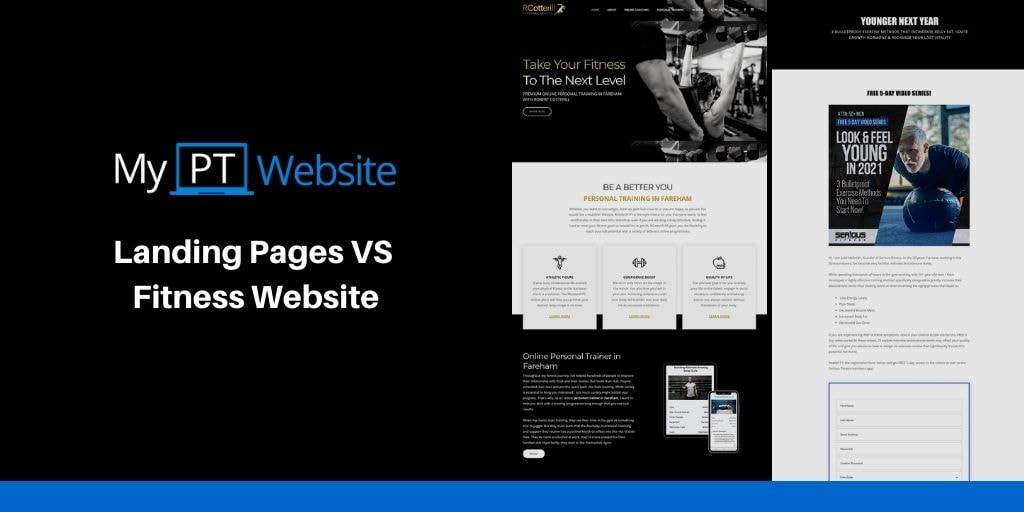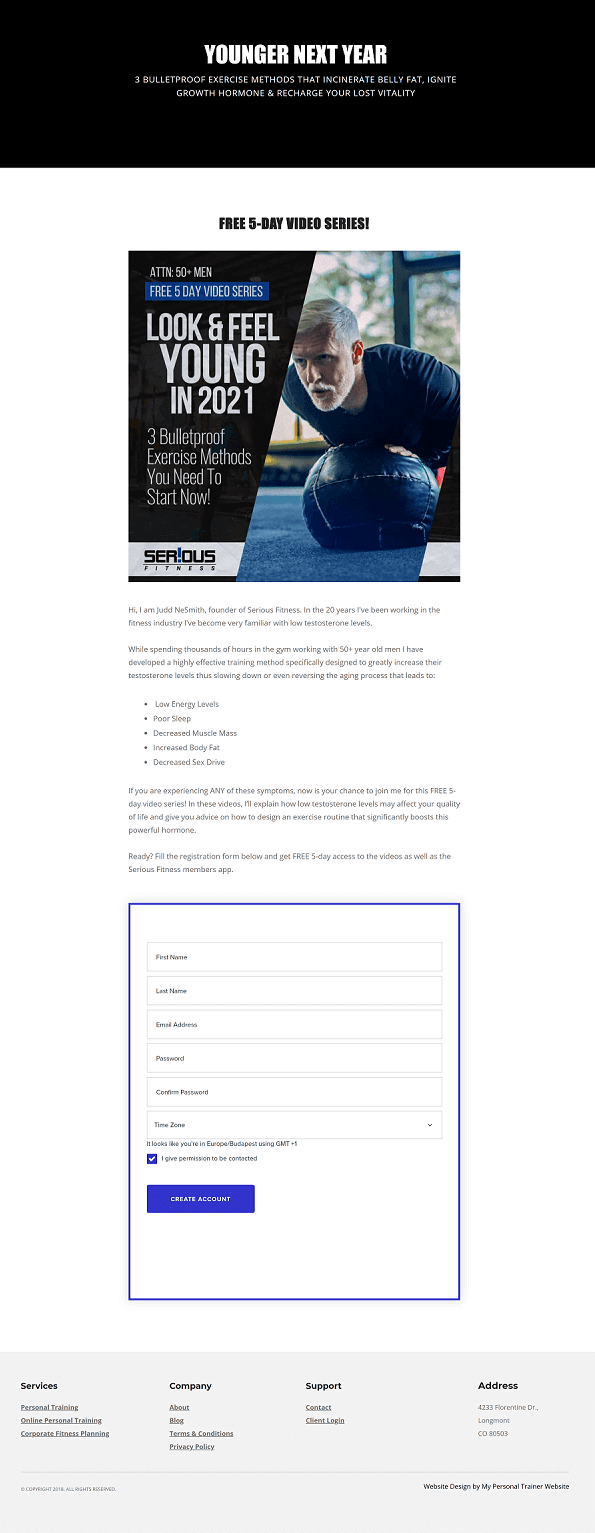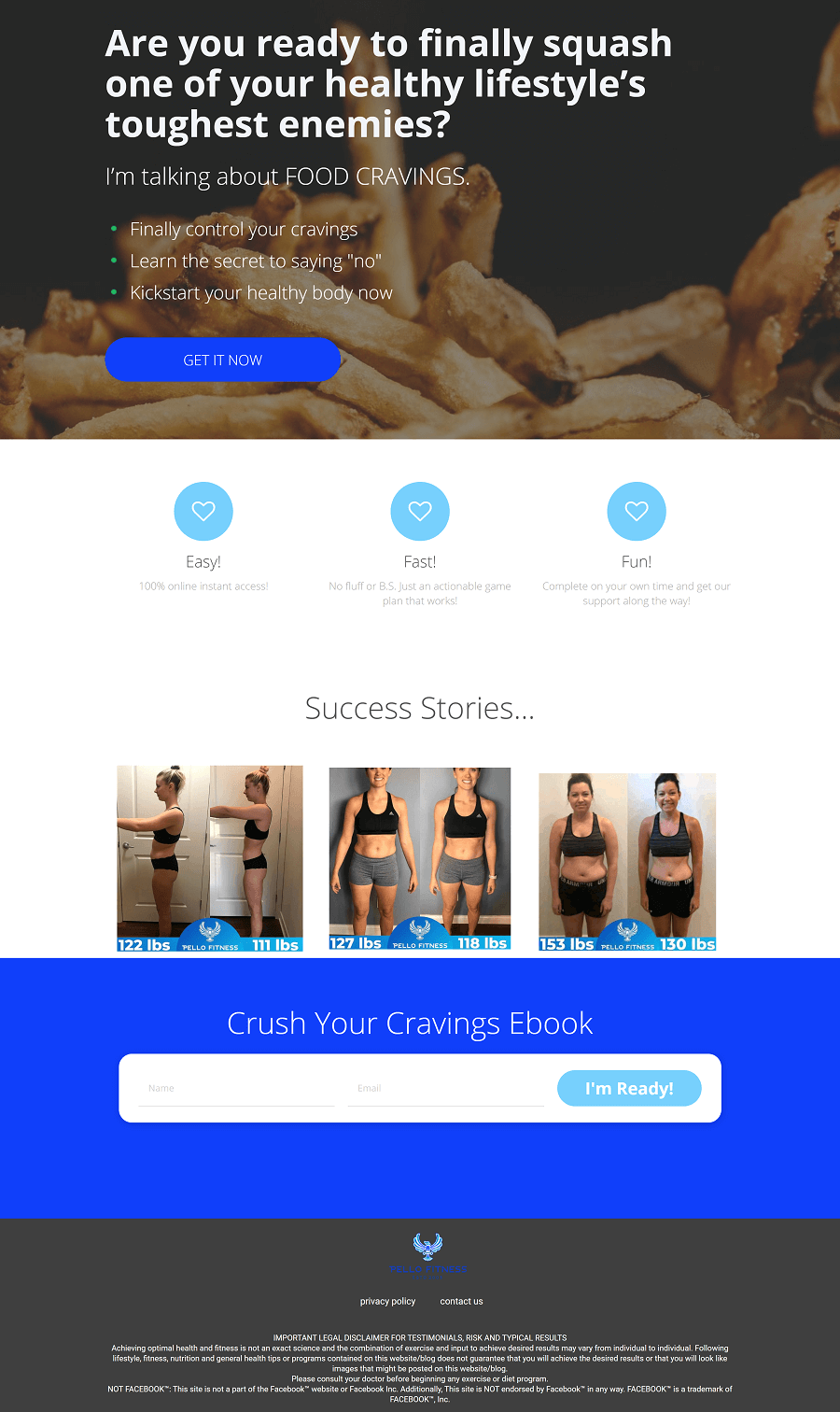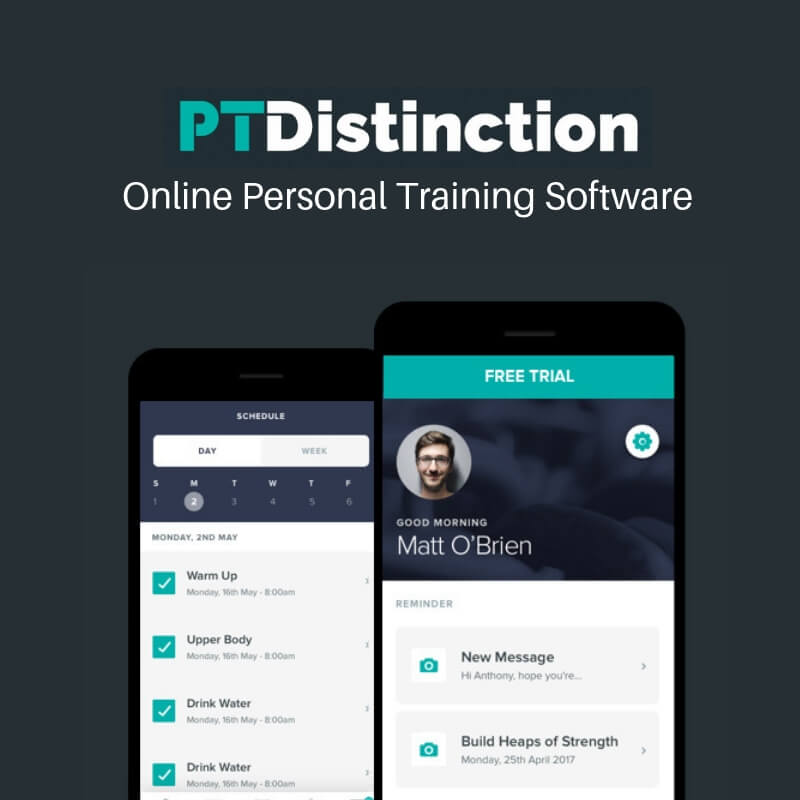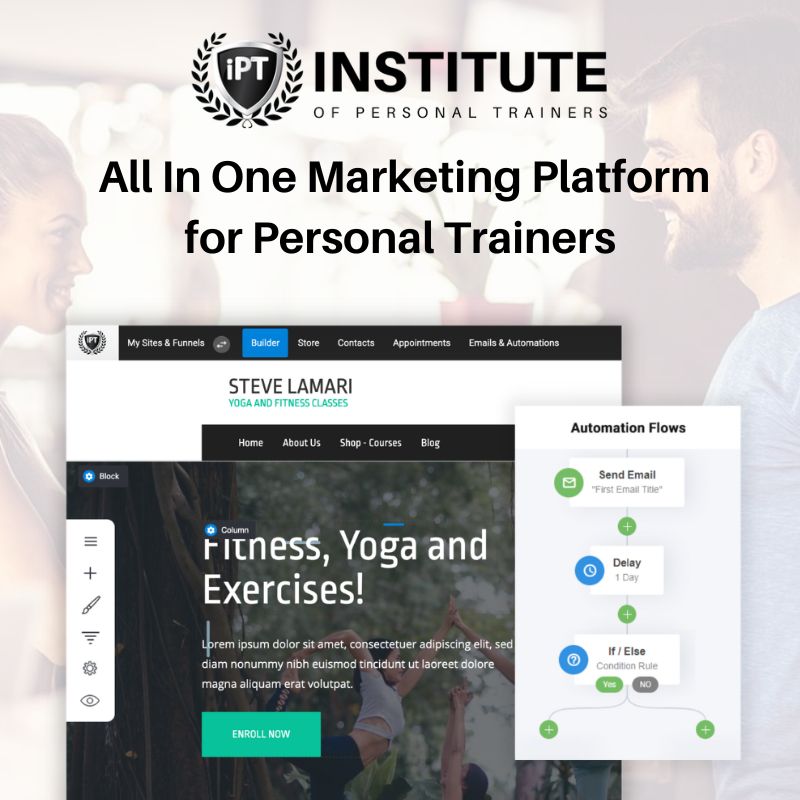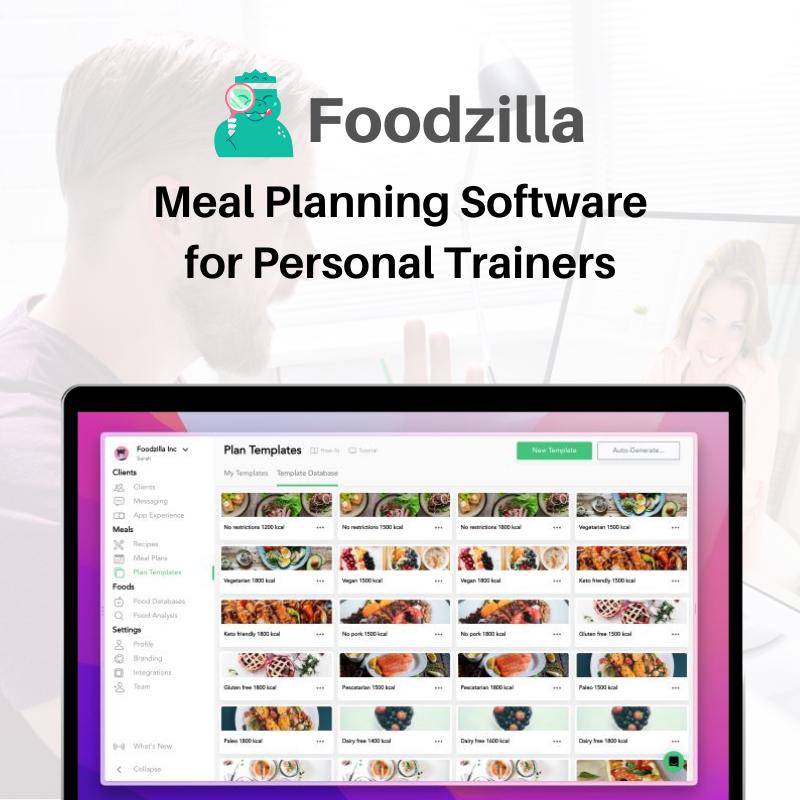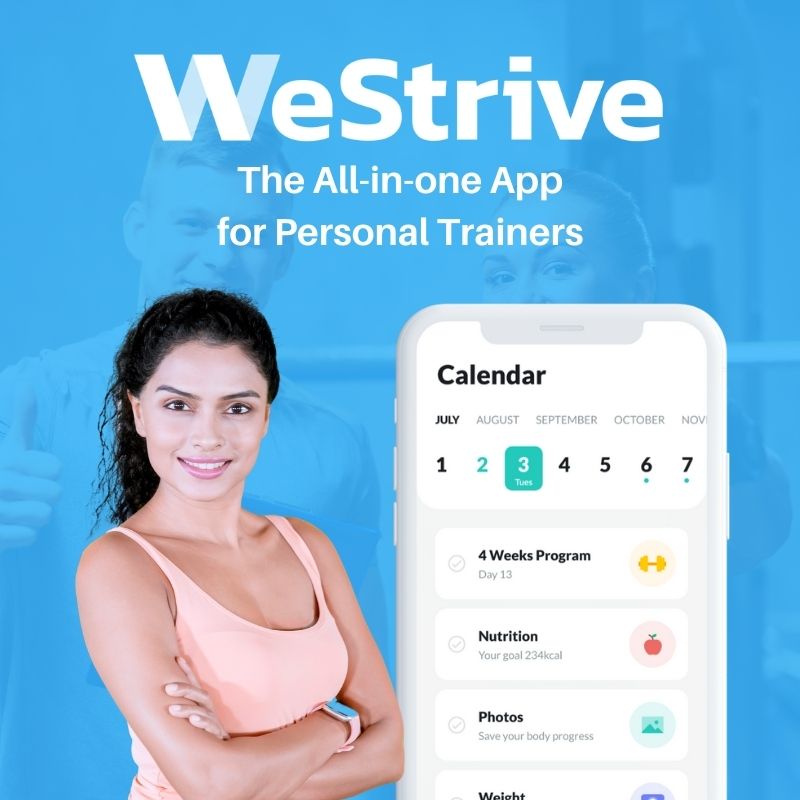It’s probably pretty obvious by now that personal trainers need to have some sort of online presence in their business and that social media profiles can only cut it for so long. The marketplace is more saturated than ever, and having a professional page or website can help you to do a few important things - chief among them, standing out to your audience as a professional. But do you need a fitness website or a landing page? And what are the real differences between the two?
What Is A Fitness Website?
A fitness website is a fully built platform that’s the home of your fitness business online. You are likely to have many pages, including a home page, an about page, a page for each of the services you offer, and a blog page.
You may even have a membership site built into your website. If you have a free download to give away in exchange for an email address, a landing page might be part of that.
What Is A Landing Page?
A landing page is a single page that’s can be hosted through your email marketing provider, like MailChimp or Mailerlite but if you have a website, you can set one up on there too as a hidden page.
The purpose of the landing page is to have somewhere that people can enter their email address in exchange for information that gets delivered via your mailing list.
The purpose of the landing page is to have somewhere that people can enter their email address in exchange for information that gets delivered via your mailing list.
This could be a form to apply for your personal training programme, to download your lead magnet, or simply to join your email newsletter. It’s far more simple than a whole website, and really only does one task - swaps your email address for something else that’s valuable to the person.
Which One Do I Need?
If you’re seeing the benefits for your personal training business from social media, that effect is multiplied when you consider your own platform. The benefits of both landing pages and websites are that they are yours.
Unlike social media, which can change the algorithms at any moment and make every post you make practically invisible to your audience - you own these platforms. You have total control about who sees this content and you’re not subject to any “pay to play” advertising rules which make it difficult to get organic traffic on social media - and even delay and complicate the paid ads you’re running.
Secondly, having your own professional platform gives you somewhere to actually direct the traffic of any paid advertising you choose to run. Going from a cold audience straight into booking a call for personal training is a very steep jump and is unlikely to be performing well for you at the moment.
Giving someone a chance to look around your website, or to sit on your email list for a little while will mean they get to know you. These are places you can build awareness, like and trust with your audience before asking them to buy anything, and warms them up properly before asking for a sale.
Unlike social media, which can change the algorithms at any moment and make every post you make practically invisible to your audience - you own these platforms. You have total control about who sees this content and you’re not subject to any “pay to play” advertising rules which make it difficult to get organic traffic on social media - and even delay and complicate the paid ads you’re running.
Secondly, having your own professional platform gives you somewhere to actually direct the traffic of any paid advertising you choose to run. Going from a cold audience straight into booking a call for personal training is a very steep jump and is unlikely to be performing well for you at the moment.
Giving someone a chance to look around your website, or to sit on your email list for a little while will mean they get to know you. These are places you can build awareness, like and trust with your audience before asking them to buy anything, and warms them up properly before asking for a sale.
Benefits Of A Fitness Website
Having a full website looks professional. It gives you more opportunity to build a relationship with your prospects, and can still reap the benefits of a landing page. You can run a blog on your website, where regularly published content can keep you on the front page of Google and will grow your fitness business naturally.
Even if you’re not a natural writer, you can improve with regular practice. A well-maintained blog gives you the chance to give regular, valuable content to your audience, and to build up authority in their eyes. The prospect feels like they’ve got to know you a little bit before they reach out and that can be really helpful in making a sale.
Drawbacks Of Having A Website
Having a website alone isn’t enough to skyrocket your fitness business’ success. It has to be regularly maintained, and properly built in order to rank on Google, and this can be time-consuming without professional help. There are lots of resources online to help, but spending time building this back end portion of your business may feel like it’s more of a long term strategy, especially if you don’t already have these skills.
Benefits Of A Landing Page
You can get a landing page up and running quickly, and many free email service providers, such as Mailerlite provide this service. To customise the domain of your landing page, you may need to pay a small fee, but this is likely still cheaper than building an entire website yourself.
The landing page does one thing only: offer the visitor a free thing. That forces you to lead with valuable information and give something to the prospect before you ask them to buy.
The landing page does one thing only: offer the visitor a free thing. That forces you to lead with valuable information and give something to the prospect before you ask them to buy.
Drawbacks Of A Lading Page
There are some pretty serious limitations to having only a landing page. It will get people into your email list, but if writing regular broadcast emails isn’t something that you are used to doing - or maybe you don’t even enjoy it - that could be a serious problem.
The landing page really only offers one thing, and if the visitor to your page doesn’t want that at the very moment they find themselves on the page, they’ll likely navigate away and you might lose them as a client for good. Writing a landing page isn’t unlike writing a sales page, and that’s something that takes a lot of skill to get right.
The landing page really only offers one thing, and if the visitor to your page doesn’t want that at the very moment they find themselves on the page, they’ll likely navigate away and you might lose them as a client for good. Writing a landing page isn’t unlike writing a sales page, and that’s something that takes a lot of skill to get right.
Conclusion
You might have a landing page as part of a fitness website, a landing page alone isn’t a website. Both are useful tools in marketing and growing your personal training business. Which you might choose will depend on how much time you want to invest in building an online presence in your fitness business.
If you’re new to this, and you have a great lead magnet that your audience are desperate to get their hands on - a landing page is probably enough, provided you’re regularly emailing your list and nurturing those leads. If not, a full website gives you a better opportunity to stay top of mind with regular blogging and promoting those blogs on your social media channels.
If you’re new to this, and you have a great lead magnet that your audience are desperate to get their hands on - a landing page is probably enough, provided you’re regularly emailing your list and nurturing those leads. If not, a full website gives you a better opportunity to stay top of mind with regular blogging and promoting those blogs on your social media channels.

